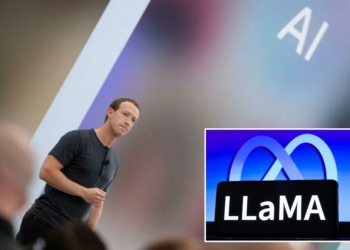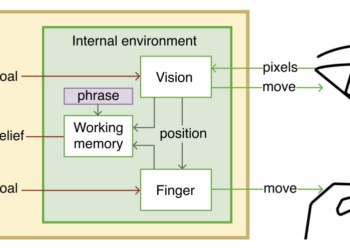
Damian Collins, chair of the Joint Committee on the Online Safety Bill: “We should be asking for more data about the age profile of users, to see how many under-13s Facebook and Instagram think they have” © Bloomberg
This article is an on-site version of our #techFT newsletter. Sign up here to get the complete newsletter sent straight to your inbox every weekday
Facebook whistleblower Frances Haugen made a guest appearance in Westminster on Monday, reeling off a list of suggestions for UK lawmakers on how they could better rein in her former employer.
Haugen was the spark that lit the fuse of the public relations crisis now engulfing the social media empire. The former Facebook employee leaked tens of thousands of internal documents showing repeated failures by senior executives to respond to internal warnings that its platform enabled the spread of misinformation and promoted violent and dangerous content.
MP Damian Collins, who chairs the committee that questioned Haugen, sat down with Madhumita Murgia, the FT’s European Tech Correspondent, to discuss how the testimony will affect UK tech regulation.
Collins, chair of the Joint Committee on the Online Safety Bill, said Haugen’s evidence confirmed that Facebook was “too committed to its engagement-based business model” to self-regulate and that it would never change its practices to favour safety online without legislation.
“Frances had some very useful and interesting ideas around the way the regulator calculates risk with relation to the platforms, and the sorts of data and information the regulator should be asking for.”
Based on Haugen’s testimony, Collins said the committee will recommend that the forthcoming landmark Online Safety Bill introduce obligations on social media companies to keep their users safe. “In particular, we should be asking for more data about the age profile of users, to see how many under-13s Facebook and Instagram think they have.”
He also said the committee would consider introducing a duty of care for social media platforms if they publish advertisements that mislead users or contain harmful content: “There’s a strong case for saying regulators should look at harmful and legal content, however it is presented on a platform, whether that is user-generated or the platform actively promoting other people’s content, or through ads.”
Later this week, the committee will hear from Facebook’s global head of safety, Antigone Davis. Collins said they plan to ask Davis about how decisions are made at the top of the company and who is ultimately responsible when things go wrong.
Murgia is one of the FT journalists that has spent the last week trawling through the stacks of “Facebook Papers”. Read a summary of their key findings here.
The Internet of (Five) Things
1. THG governance reform
Ecommerce group THG will appoint a non-executive chair as part of its efforts to improve transparency and move its listing to the premium rather than standard segment of the London Stock Exchange. Co-founder and chief executive Matt Moulding has been acting as executive chair of the company, which floated last year. That is permitted under listing rules but goes against best practice guidelines.
2. Working from Space
Jeff Bezos’s space exploration company Blue Origin has announced plans to launch a commercial space station into low-earth orbit in the latter half of this decade. Describing the endeavour as a “mixed-use business park” in space, Blue Origin, and its main partner on the project, Sierra Space, said it would house up to 10 people in an area of about 30,000 cubic feet. The station, to be called Orbital Reef, will be an ideal location for a “space hotel”, “film-making in microgravity” or “conducting cutting edge research”, says a promotional website.
3. Amazon in the cloud
The UK’s three spy agencies, GCHQ, MI5 and MI6, have contracted AWS, Amazon’s cloud computing arm, to host classified material in a deal aimed at boosting the use of data analytics and artificial intelligence for espionage. The contract is likely to ignite concerns over sovereignty given that a vast amount of the UK’s most secret data will be hosted by a single US tech company.
4. Motorola hits out at UK competition watchdog
Motorola Solutions said a UK competition watchdog investigation of its lucrative contract to provide communications services for emergency services workers is “not warranted”. Authorities are looking into the US company’s role in the delayed rollout of the Emergency Services Network, which has come in part because of technical issues with Motorola’s technology, among other factors. The company rejects the assertion that it purposefully delayed the project. The watchdog estimates Motorola could stand to make “excess profits” of up to £1.2bn between 2020 and 2026.
5. European carmaker pleads for homemade chips
The chair of European carmakers’ lobby group Oliver Zipse, who is also chief executive of BMW, warned in a letter to the European Commission that the continent’s carmakers must cut their reliance on Asia for semiconductors or risk a repeat of the crisis that has led to factory shutdowns across. Volkswagen, BMW and Renault are among those forced to idle plants because of fierce competition for chips — relied on by cars for everything from electronic windows to driver assistance systems — from a consumer electronics industry that boomed during the pandemic. Car sales across Europe fell 23 per cent last month to their lowest level since 1995 as carmakers were unable to meet demand.
Tech tools —
Huawei last week released a collection of GT 3 watches targeted at health and style-conscious consumers. The Chinese tech company’s consumer tech arm shifted away from smartphones towards smartwatches and headphones that do not rely on high-end foreign chip technology after the US cut off its supply when it was blacklisted in 2019. This reinvention has produced the GT 3 smartwatches, which claim Mo Farah as its brand ambassador and include a series of functions to users’ track health and fitness, including a heartrate monitor. The company also touts that the watches have an in-AI powered running coach that will provide personalised fitness plans. The bulkier GT 3 46mm model has a longer battery life than the 42mm, giving it the juice to power the watch for around two weeks, depending on usage.
The Huawei Watch GT 46mm is priced between £229.99-£299.99. The Huawei Watch GT 3 42 mm retails between £209.99-£279.99.
Recommended newsletters for you
#techAsia — Your guide to the billions being made and lost in the world of Asia Tech. Sign up here
#fintechFT — The latest on the most pressing issues in the tech sector. Sign up here













